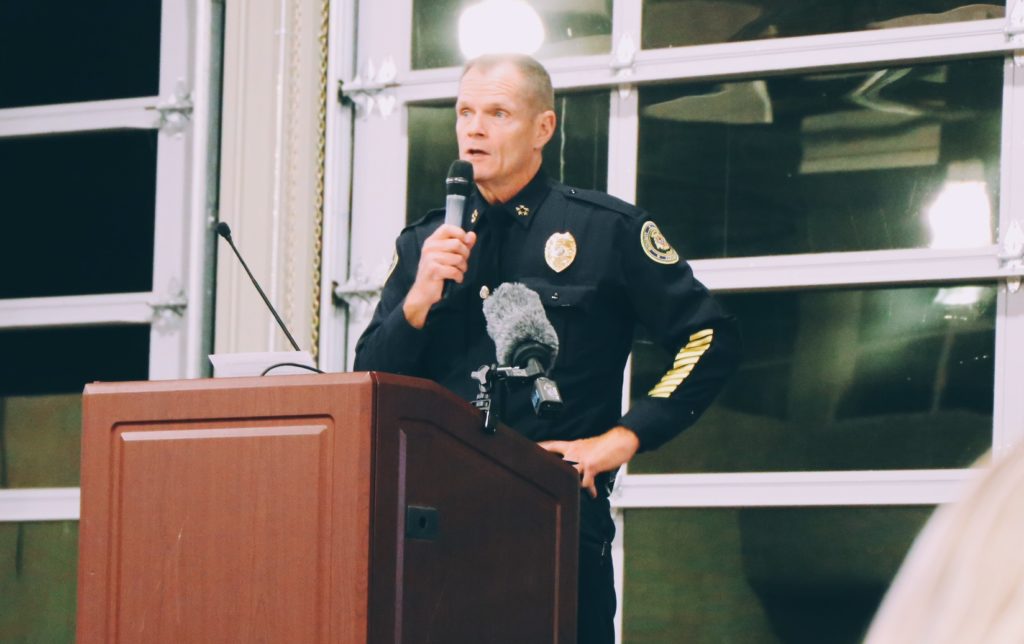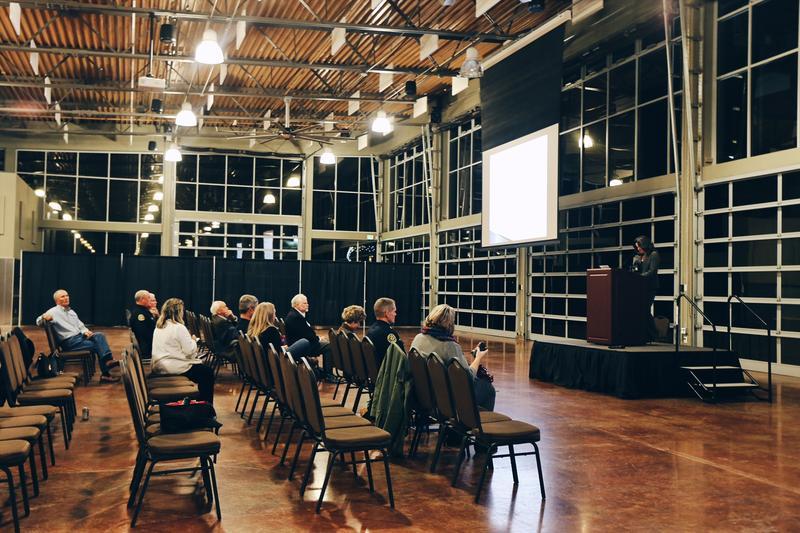
Cell phone footage shot by bystanders showing sometimes violent police interactions with civilians has led to more discussions nationwide about whether officers should wear body cameras. In some cities, local law enforcement has resisted that idea.
But that’s not the case in Clarksville, where the police department has actually been one of its biggest supporters.
More than 85 percent of police officers in Clarksville say they’d like to wear a body camera,
according to Alonzo Ansley
, the chief of police, who polled law enforcement officers in his precinct before deciding to apply for a federal grant. He says the younger, more tech-savvy
officers really supported the idea.
“They are not afraid. They treat people with respect,”
said Ansley
.
“I
n today’s technology, people are recording us. We’ll record you.”
A draft of the Clarksville policy regarding the purpose and use of the body cameras makes no direct mention of its potential to reduce police misconduct. Rather, it focuses on how the cameras can “assist and complement officers in the performance of their duties,” including discouraging citizens from acting out during an arrest, helping them with filing more complete reports and even defending officers wrongly accused of misconduct.

Cameras have already helped officers facing allegations. Last year, Clarksville Police Department received
11 formal citizen complaints
— three of them for excessive use of force.
According to the city, all three cases of alleged forceful misconduct, which involved multiple officers, were either deemed unfounded or the officers were exonerated after investigations that used video or audio from their patrol car cameras.
City officials say
implementing the new body camera program “will be a complex process” that will include developing policies, figuring out logistics for storing massive amounts of data downloaded from the cameras daily, training officers and sharing information about the program with the community. The first of those public meetings took place this week.
All of this will cost the city $675,000. Half of the funds will be covered by a federal grant Clarksville was awarded earlier this year by the U.S. Department of Justice.
The ACLU of Tennessee applauded the city’s decision to consult with the community and take their time in developing new policies. At a public forum on Tuesday in Clarksville, Hedy
Weinberg, the civil rights organization’s executive director, said although “body cameras are only a tool,” they can bring a greater sense of transparency and accountability to a law enforcement agency.
Weinberg also addressed Chief Ansley’s statement about how quickly footage would likely be made available to the public: He said they wouldn’t release video until after an investigation was completed.
She
encouraged the chief to release footage to the public more quickly, should allegations of misconduct arise, adding that waiting until an investigation is over is simply not enough to foster transparency in a community.
The next meeting to hear community input is scheduled for Dec. 14.


